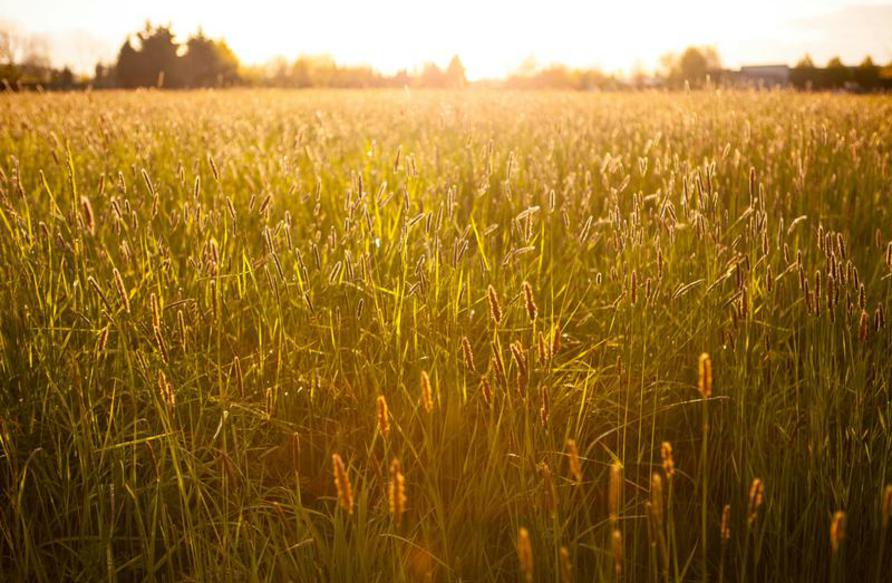by Mikal Wix
April 16, 2025
Little Mercy by Robin Walter; Graywolf Press; 96 pages; $17.00.
Robin Walter’s debut collection of poetry, Little Mercy, published by Graywolf Press, was chosen by Victoria Chang to win the 2024 Academy of American Poets First Book Award. Walter’s poetry is resplendent with deceptively simple arrangements that reflect the sometimes-fickle beauty of the natural world. But unlike earlier poets who wrote nature poems, such as Wordsworth, Frost, or Hopkins, Walter’s poems are more akin to the sparse, airy poetry of Dickinson, Oliver, Glück, or Snyder. The verses of Little Mercy closely resemble the idyll form, interwoven with the eclogue. The bucolic character of the lines, albeit without the dialogue with the shepherds one might expect in an eclogue, calls back to the pastoral scenes of rural life of which Theocritus and Vigil wrote so many centuries ago. But Walter has taken these forms and made them her own: the use of fragment, repetition, and a profound attention to the meditative state of being present, infuses these poems with the feeling of a capacious awareness and the power of testimony.
The first time I read Little Mercy, I thought of Jerzy Kosinski’s 1979 novel, Being There, not because of any similarity to the quality of fiction or style of writing, but because of Kosinski’s protagonist, Chance, and how his arc in the book reflected my own while I read Little Mercy. I transformed from reading the poems as images of still life to reading (and hearing) them as oracular, supported fiercely by metaphors of growth and cycles, and by contradictions blending beauty and cruelty, promise and fear, knowing and innocence. Walter’s poems reveal themselves as human battles between rapture and despair: …to make my body gentle; my love / for ripe peaches / & summer; how often, really, I want / to end my life. And later from “Three birds,” I catalogue each harm / I’ve ever made with my hands…. —the hand is both a palm and a fist. And a wing is both relief and shadow in “Beyond the meadow”: Rustle of wings / in dark / canopy—shadow of wing…. And the sun is both bright and rapacious: like a little / hand mirror— / —hold bright / the threshing sun — from “—Watch.”
The speakers in these poems suggest that to exist in an ever-changing world requires that we hold these incongruities close and bear them, that we make a nest of them, like the leitmotif of the wren that reoccurs repeatedly in the book. The wren symbolizes a lucky and determined connection with the natural world. And the word nest appears 25 times in Little Mercy, nearly as often as the word river. Mary Oliver once wrote in the Winter 2001 issue of Amicus Journal: This is the first, wildest, and wisest thing I know, that the soul exists, and that it is built entirely out of attentiveness. This existential philosophical sentiment seems to clearly articulate Walter’s poems, particularly as they speak to the poetics of what today we call eco-poetry. Intimate explorations of our complex relationships with the natural world around us: the impact of human activities, and how we have collectively moved beyond romanticizing nature to see more clearly and deeper into the underlying consequences of this interconnectedness. In Walter’s poetry, we find this witnessing of birds, of rivers, of wind, trees, and snow as being underpinned by a subtext of panic: The mother busy / & vigilant—one black eye / peering at me over the lip of nest — from “How far from here.”
Throughout the book, there are many short poems of 5–10 words each. The reader thinks of the haiku, the cinquain, or even the Naani form, but Walter’s brand of short verse is unique and cryptic, with a portentous shade about them: rivers open— / each of us / undone / by shadows small / & shaking— from the poem titled “—The body.” Overall, there’s a preponderance of hope present in Little Mercy, though, which seems to point us to a window out, a way to ground oneself to the moment, to the cadence of prairie grasses bending in the wind: There are not always / fathers— / but always, birds, / & sometimes, yes, / a window. from “July prayer to survive the summer.” This contemplation of bright assurances is strongly supported by the conventions of nomenclature, too. The power of naming something offers the speakers in these poems another way to bolster the intention to hold time and place as anchors to our meditative foci. From the longer poem, “The beginning of July,” These the sounds we fold into prayer / & press into streams— / Penstemon. Lupine. Balsamroot. / Tiny heart. Sorry. Blood clot. Here, three flowers are named and mark the passing of an uncle who was buried in the hill.
Little Mercy is a book of poetry that arrives to offer a vastness in the tiniest of spaces. By corralling the words into poetic restraints, and then by arranging them to maximize their inherent dominion, Walter has concentrated the lines into complex chords, offering harmonic colors and sophisticated sonorities to their music. From one of the archetypal poems of the book, “—Dreamt the body,” it’s illustrated how poetry can border mythmaking: the mouth a nest / of shadows / thrown by slim needles / of pine…. Walter shows us that the poetry of the infinitesimal, whether by size or quantity, can lead us to paramount concerns, and to a state of grace where we might find the majesty of language as it tries to embrace the habits of the heart, as well as the tempers of the wilderness. As Gary Snyder wrote in Turtle Island, “Find your place on the planet. Dig in, and take responsibility from there.” And I believe Robin Walter has found hers.
__________________________________________________________________________________________________________________________________________________________________________
__________________________________________________________________________________________________________________________________________________________________________
__________________________________________________________________________________________________________________________________________________________________________
The Trembling Expanse of Stillness in Robin Walter’s Little Mercy
POETRY REVIEW
Image by Chris Larson from Pexels
Mikal Wix lives in the American South, which seeds insight into many outlooks, including revenant visions from the closet. Their work can be found or is forthcoming in Corvus Review, Olit, Berkeley Poetry Review, Tahoma Literary Review, Roi Fainéant Press, decomp journal, and elsewhere, and works as a science editor by day.
__________________________________________________________________________________________________________________________________________________________________________
__________________________________________________________________________________________________________________________________________________________________________
© 2025 Iron Oak Editions
Stay Connected to Our Literary Community. Subscribe to Our Newsletter





